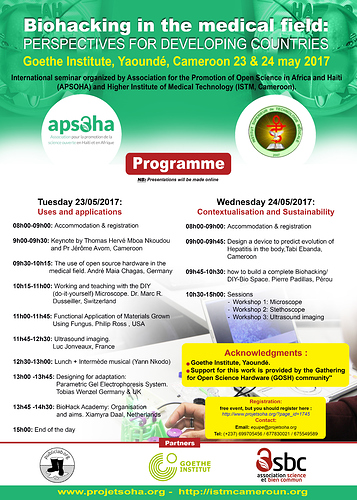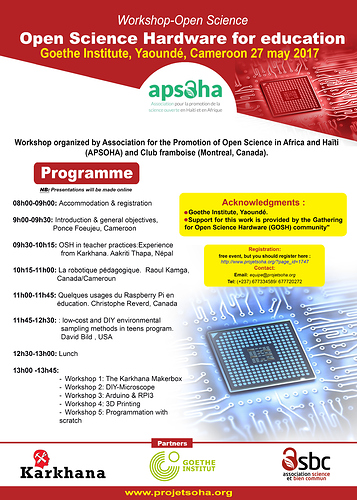@bletchley2411 This conference seems like it is trying to tackle some really important questions - thanks for the work you are doing to help organize scientists around these values. That being said, I hope that Alexis’s comments, and critique won’t be lost or ignored. From your response, it seems you might have taken her statements personally, but I don’t think the purpose of her comment was to attack you or the work you have done in Africa.
It seems like she was pointing out the fact that your event is focused on empowering people who have been systematically devalued (a great value to start with) but that your event’s lineup of Plenary Speakers - those who are lifted up as the thought leaders of the movement - does not reflect this goal. This might seem petty, but when you are trying to empower people who have been systematically disempowered by colonial, neocolonial, capitalist, patriarchal (pick your poison) power structures – it’s important to consider whose voices are lifted up the highest and put in symbolic positions of power.
I attended GOSH for the first time this year, and was really impressed by the effort they’ve put into creating systems to work towards the structure of the conference, and the diversity of attendees and speakers reflecting their values. I don’t know anything about the Symposium in Mexico (don’t have time to look through the whole website at this moment) but here are some things I noticed GOSH did to address the issues that Alexis is trying to raise:
An Emphasis on Equity rather than Equality:
This one is really important - and something that Max Liboiron addressed powerfully in her presentation at the very beginning of the conference. By having her speak to this at the start of GOSH, and to the ways she concretely practices this in her lab CLEAR – those values were clarified and lifted up throughout the conference. Here is a statement on the difference between Equity and Equality from the GOSH code of conduct –
“equality is about treating everyone exactly the same, while equity recognizes that everyone does not start from the same position and so treating everyone the same may leave them in the same uneven positions they began in. For this reason, we are intentional about actively reducing the inequitable barriers that stand between science and those who create, use, and learn from it.”
Intentionally addressing inequality in the selection of attendees and speakers:
One of the GOSH organizers would be better able to speak to the specifics of this – but I remember the mention of a selection process that was used to ensure that a certain percentage of conference goers and speakers were women, transgender, and non-binary people – and representative of diverse communities around the world. As a non-binary person that has experienced a lot of alienation in scientific spaces, just the mention of this made me more likely to participate and feel my contributions were valued.
Having a Code of Conduct and Safety Officer:
GOSH has developed a Code of Conduct to ensure people are interacting respectfully and has a safety officer that can take complaints if someone is being disrespectful. Everyone was required to read through this and agree to it in order to attend the conference, so it can be a good way to prime people.
Having a shared understanding that technology is not inherently good and scientific knowledge is not an ultimate truth that legitimizes cultural erasure:
This one is more something I picked up on as an undercurrent of the conference that had to be addressed in many discussions. Even when people have genuinely good intentions and are acting out of a place of love, it’s easy for discussions to slip into this colonial mindset of - “oh, these poor people don’t have science and western living, and our way of living is so much better so we need to help them understand why what we know is right and what they know is wrong.” I’m really thankful to have been introduced to the concept of, “Cognitive Justice” by Mboa Nkoudou – seems like a great theoretical framework for thinking about and addressing the ways we as western scientists participate in the types of cultural erasure and invalidation that is often an unintentional effect of the work of NGO’s and non-profit philanthropic missions. Here’s the wikipedia entry https://en.wikipedia.org/wiki/Cognitive_justice I’m very excited to dig deeper into the literature on that topic…
As I said before, I don’t know much of anything about the Conference in Mexico aside from surface level information, so these organizing principles may be useful to you, or they may be things you’re already working on. I just hope that these methods can spread and advance because they are so desperately needed for this type of work to be successful and so scarcely addressed 
Best,
Rian Hammond


